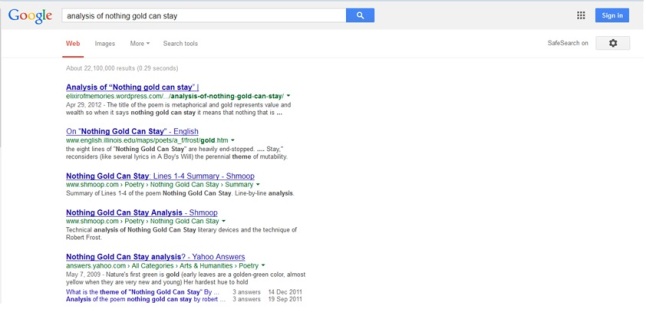The title of the poem is very simple and straightforward which might mean that making amends is a very easy thing to do but also because it stands alone, it means that you have to take the decision yourself and not let others decide for you.
“Nights like this”, the opening line of the poem emphasizes on the point ‘this’ which means that this is a special night (probably a full moon) and not just any normal night.
“On the cold apple bough…out of the bark.”, here these lines that describe the apple tree, reflect the sky at night as it says words like ‘cold’ which could define the night sky as cold, distant and alone. Nonetheless, at the same time, poem says, “a white star…exploding” meaning even in the distant, alone sky there is a star of hope and if you keep looking then there will be more, “then another…”
The poem then starts mentioning the job of the moon; “moonlight picking at small stones”, here, small stones shows that the moon not only amends the bigger the things in life, but also the small things, which we take for granted at times. The poet starts with ‘small stones’ which tells us that we should begin by amending the small things in life before we move onto the bigger things, just like the moon who “…picks at greater stones…”
The moonlight starts with amending all things of nature first, ‘surf’, ‘stones’, ‘ledge’. “Lays its cheek for moments…”, ‘moments’, emphasizes that the moon is very busy and it cannot afford to use more than a few moments and because of this, its movements are very quick, ‘licks’, ‘flicks’, ‘flows’. As the moon starts to move away from nature and towards mankind and man-made objects, its work becomes harder. Now the moon has to use more effort, ‘pours’, instead of ‘flick’, ‘leans’, instead of ‘flows’ and soaks instead of ‘lick’. This is because human mistakes are harder to amend as the human mind is very stubborn and mostly it takes years for man-kind to forgive, forget and move on. “Unavailingly pours into the gash…” it means the moon is very determined to try to heal the gash but is unsuccessful as it is a very deep gash, but the moon has to more on.
“Soaks through cracks…with sleep…”, ‘soaks’ personifies the trailers as a sponge which absorbs the moonlight. “Tremulous with sleep” shows that each trailer is filled as if it’s being washed clean by the moonlight and because of that it seems as if they were quivering. “Dwells”, shows that the moonlight couldn’t just “lay its cheek for moments” as humans needed the most attention and care over a whole night to make amends.
Finally, from the 5th to 15th line, repletion occurs as it confirms the moon is making amends; “as it”, but in the last and final line of the poem, the poet writes, ‘as if”, telling us that every human wishes and fantasizes about the moon (aka someone) solving their problems, but in reality it is they who have to do it. While the moon doesn’t make amends, it motivates them by shining brightly in the dark, cold sky as a glimmer of hope.
The poet uses highly effective descriptive imagery and figurative language by using many describing words and phrases like, “exploding out of the bark” and ‘flicks the broken ledge”. I think she uses that to show that at night there are many beautiful sights to enjoy.
She personifies the moon to make it sound like a loving elderly person (probably a mother) that heals everyone. “Licks the broken ledge”, here ‘licks’ makes it sound like the moon was like a cat, licking its kittens wounds. It creates a very beautiful and caring image in a readers mind.
She also uses a lot of repetition, “as it” to show that it is a pattern and the moon travels ‘round the whole earth while making amends. She uses lots of onomatopoeic words as well to show movement and constancy of the moonlight, Words like ‘licks, ‘flicks’, ‘flows’, ‘rises’, create a sense of fast movement while words like ‘pours’, ‘leans’, ‘soaks’, create a more slow movement. Sibilance is used in line 4, ‘small stones’, to show that making small amends can be very smooth while assonance is used in line 12, “though…the trailers” gives a harder, rougher edge to the stanza because the trailers are manmade.
The rhyme and meter are quiet fast but smooth in the first 2 stanzas as the moon moves at a quick pace there, but when it reaches the last 2 stanzas, it’s more of an effort and that slows the moon down and with it the rhyme and meter as well.
Finally, I think the poet has beautifully compared and contrasted between the amends that are needed to be made by nature and humans, It clearly shows that mankind has to work a lot harder in order to make amends as they have done more harm to nature than nature itself, “…pours into the gash..” while nature only has “the broken ledge…” but instead of criticizing them, she tells them to work for the one ‘exploding white star…” exploding out of the bark and then she tells us that we will find the other automatically. She also tells us to work first at the smaller things in life and then continue to amend the greater and bigger things.


